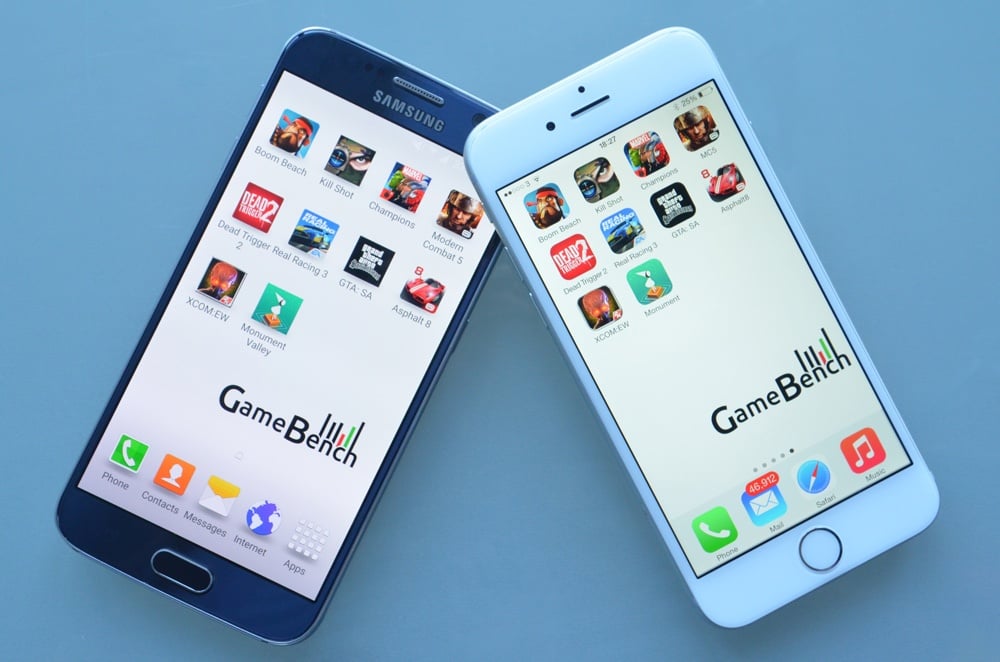
- GameBench Staff
- 21. April 2015
-
0 Comments
Our latest report, "Battle of the Sixes," has just been published and it offers something pretty interesting: The first objective comparison of the Apple iPhone 6 and the Samsung Galaxy S6 on the basis of real-world gaming performance.
We're able to do this thanks to the iOS version of GameBench, which, in concert with the Android version, means we can test the same games according to the same criteria (namely, graphical smoothness) across both platforms. We've picked a sample of ten high-end games for this purpose, including titles like GTA: San Andreas, Monument Valley and Marvel: Contest of Champions. For some added context, we've also included performance data for the Google Nexus 6 and the HTC One M9.
You can see a snapshot of our results in in the graphs below, which reveal a 10 percent average lead for the iPhone 6 across the ten high-end games that we tested. You can also register your details to get the full in-depth report and data. The iPhone 6 tended to run games more smoothly, with a higher average frame rate that was very stable and rarely dropped below 30fps. The Galaxy S6 came a pretty close second, with a greater frequency of performance bottlenecks that pushed the framerate below the 30fps threshold. The HTC One M9 and Nexus 6 came third of and fourth respectively, showing serious performance slow-downs in some games.

Just as the GameBench tool is unique in its ability to measure these performance metrics across different devices and platforms, so too is our methodology quite new to the world of mobile. We're totally focused on measuring the way real games play on real devices, in order to provide useful intelligence to game developers and hardware makers. Our data can't always pinpoint the reasons for certain results, because there are so many uncontrolled variables. For example, the Galaxy S6 plays some games at a higher resolution than the iPhone 6 (1080p versus roughly 720p), which can lower its scores. Alternatively, a game may simply be well-optimised for one platform and poorly optimised for another, such that a performance problem could be solved without touching the hardware.
However, we believe that quantifying real-world performance is the first step to understanding and improving it, and this simply hasn't been possible on mobile until now. Moreover, as we test more devices and games, we can start to narrow down potential causes for the differences we observe. For example, in our next report we'll look at the iPhone 6 Plus, which has a screen resolution closer to the Android standard of 1080p.
You can find a complete description of our methodology, along with our game-by-game results and conclusion, by downloading the full "Battle of the sixes" report in PDF format. We'll email this report to you free of charge if you register your details.
